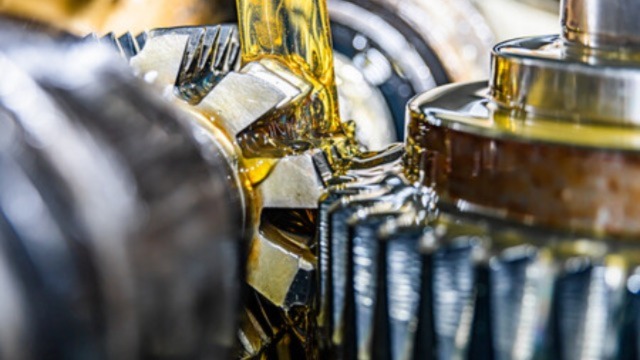How Poor Lube Oil Cleaning Could Be Impacting Your Business
Is contaminated lube oil a risk for your operations? Poor oil quality could be costing your business—resulting in high maintenance costs and shortening the lifetime of your equipment. But a high-speed centrifugal separator can help to improve the reliability of your lube oil and save money in the long run.
DATE 2023-11-28Lube oil is essential in a variety of industrial applications for lubrication, cooling and anti-corrosion, particularly for movable machine parts like bearings and gearboxes. Clean lube oil means the production process can operate at optimal performance.
Contamination is typically caused by ineffective cleaning processes that fail to remove unwanted contaminants. But even under the best of circumstances, lube oil will eventually become contaminated as particles and water enter and remain in the system. Indeed, a substantial number of machine failures in the manufacturing industry are related to contaminated lube oil.
The risks of contaminated lube oil
Over time, contamination can result in chemical degradation, corrosion, increased friction, clogging, efficiency losses and high oil consumption. And that can be costly to your business.
An ineffective production process means lower productivity and lost revenue. In addition, the increased risk of machine wear and eventual failure adds to maintenance costs. So does the frequent disposal and replacement of oil—which isn’t just costly, it’s bad for the environment.
In the long run, poor lube oil quality decreases the lifetime of machinery and equipment, requiring more frequent investments in maintenance and replacement. And even very small increases in contamination levels can severely impact the lifetime of machine components and systems.
What are the types of lube oil contamination?
There are two types of lube oil contaminants: particles and water. Small particles like sand or dust—from worn metal, plastic or rubber components, as well as paint flakes and airborne dust—tend to find their way into even the most enclosed systems.
Water is also a contaminant. While all oils contain water to a certain degree, water can contaminate lube oil through leakages and condensation, causing severe problems. For some, like the pulp and paper industry, water is the primary cause of bearing failure.
Water has a lower viscosity than lube oil and reduces its lubricative properties. Trapped in bearings and gears, water droplets can implode under pressure and cause micro-cracks. There’s also the risk of metal-to-metal contact when lube oil is pushed away by water.
Water contamination has several negative effects on overall system performance, including:
- creation of high-viscosity emulsions, which have a damaging effect on valves and pumps
- oxidation of oils and additives, which creates hard particles
- reduction of oil viscosity and lubricity
- reduction of bearing lifetime
- corrosion
A high-speed solution
There are several methods of removing contaminants from lube oil, including filters, coalescers, vacuum dehydration, and centrifugal separators. Each method has pros and cons, and the recommended usage depends on the application and contamination challenges.
Of all the methods, high-speed centrifugal separators are widely known for their highly efficient lube oil cleaning abilities, removing particles and water in a single operation. With consistent and reliable performance, they require minimal maintenance, improving both process uptime and running costs. And integration of a centrifugal separator is simple since no modifications to existing systems are required.
For Bryan Texas Utilities, a municipally owned electric utility company operating in central Texas, where reliability is critical. Maintaining its status as a Diamond-Level Reliable Public Power Provider from the American Public Power Association means maintaining the reliability of its gas-fired steam turbine—right down to the lube oil.
Using a high-speed centrifugal separator from Alfa Laval, Bryan Texas Utilities can handle the large cleaning volumes the utility requires—with less maintenance, more uptime and an overall low total cost of ownership. As a result, they’re able to maintain the reliability that a nationally recognized power provider requires.
Want to see the difference a separator can make?
When it comes to cleaning your lube oil, a high-speed centrifugal separator is a sustainable solution with high performance and low operational costs, which can help to prolong the life of your equipment.
Learn more about how high-speed separation can help keep lube oils from being a risk to your operations by talking to an Alfa Laval expert.

